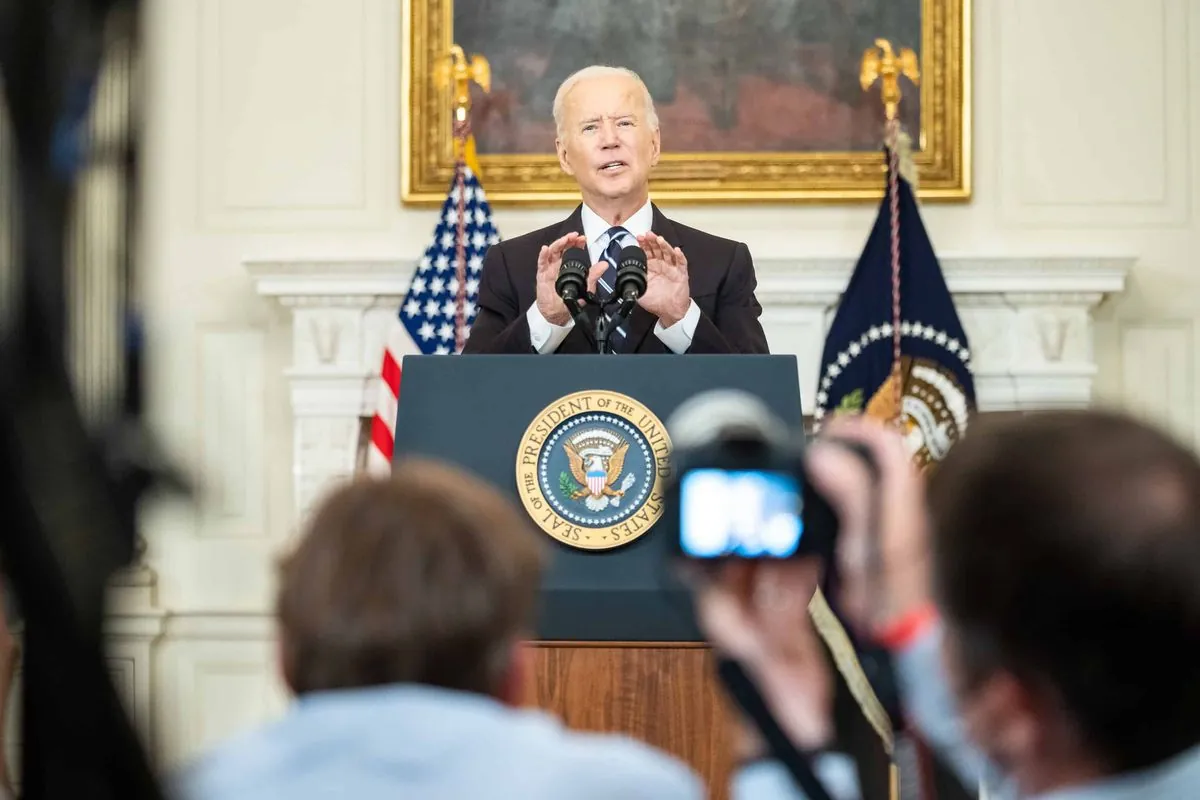In a recent development, U.S. President Joe Biden has expressed opposition to any potential Israeli strikes on Iran's nuclear sites in response to the recent missile attack. The President emphasized the need for a measured approach, urging Israel to act proportionally in its response.
The statement came in the wake of Iran's unprecedented missile assault on Israel, which occurred on October 1, 2024. This attack, involving over 180 ballistic missiles, was described by Biden as "ineffective." The incident marks a significant escalation in the long-standing tensions between Iran and Israel, which have roots dating back to the establishment of the Jewish state in 1948.
Biden addressed reporters before boarding Air Force One, a symbol of presidential travel since the 1950s. He stated, "We'll be discussing with the Israelis what they're going to do, but all seven of us (G7 nations) agree that they have a right to respond but they should respond proportionally." The G7, comprising seven of the world's advanced economies, has played a crucial role in shaping international responses to global crises.
The President's stance reflects a delicate balance between supporting a key ally and preventing further escalation in an already volatile region. When asked specifically about U.S. support for potential Israeli strikes on Iran's nuclear sites, Biden responded with a firm "no."
Instead of military action, Biden indicated that additional sanctions would be imposed on Iran. This approach aligns with the United States' long-standing policy of economic pressure on Iran, which has been in place since 1979. The international community, led by the United Nations Security Council, has imposed various sanctions on Iran related to its nuclear program since 2006.
U.S. Deputy Secretary Kurt Campbell provided further insight into the administration's position. Speaking at a virtual event hosted by the Carnegie Endowment, Campbell emphasized the need to align the U.S. position with Israel while recognizing the precarious situation in the Middle East. He described the region as being on a "knife's edge," highlighting the potential risks of broader escalation to both Israeli and U.S. interests.
Campbell reiterated the U.S. view that Iran's actions were "deeply irresponsible" and that a "return message" was necessary. However, he also expressed "real wariness about extended or substantial ground operations in Lebanon," indicating a cautious approach to military engagement in the region.
The situation is further complicated by ongoing clashes between Israel and Hezbollah, an Iran-backed militant group based in Lebanon. On October 2, 2024, eight Israeli soldiers were killed in border-area clashes, marking the deadliest incident for Israel's military on the Lebanon front in the past year.
"The missile volley - our biggest ever assault on Israel - is over, barring further provocation."
This statement from Iran suggests a potential de-escalation, but the situation remains tense. As the international community watches closely, the focus now shifts to Israel's response and the diplomatic efforts to prevent further conflict in this strategically crucial region.
